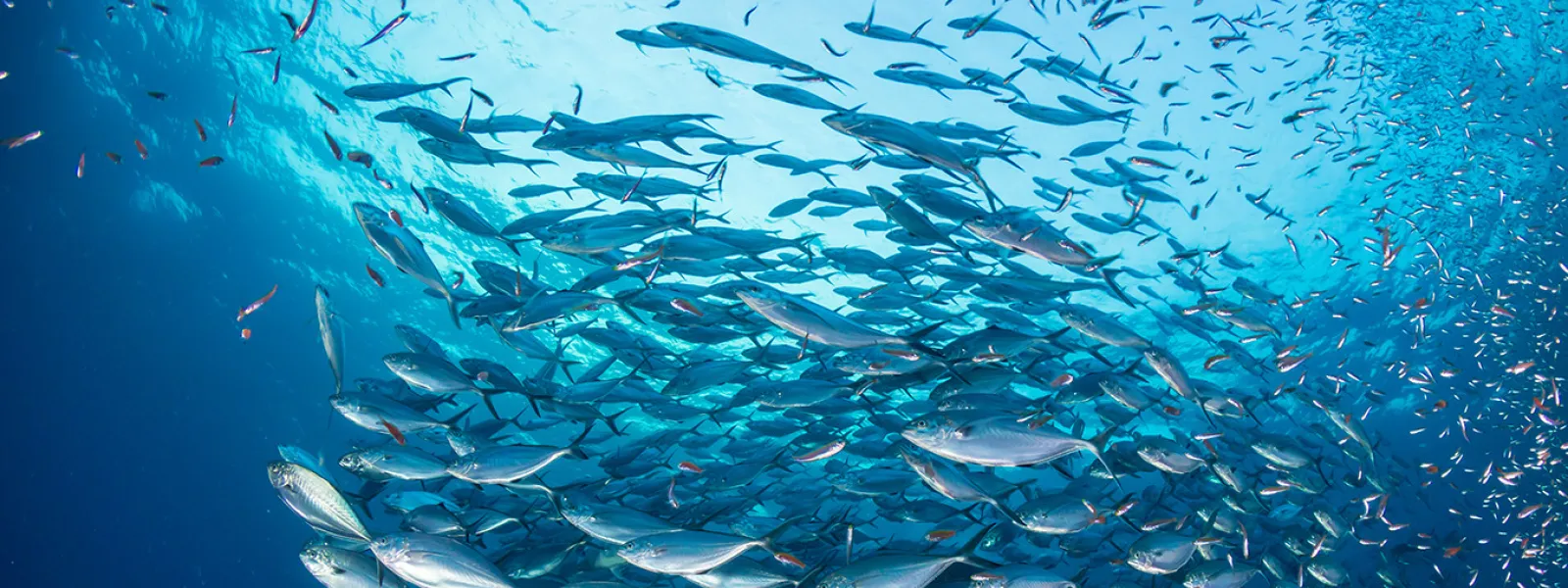
Project
ShutterstockTowards an end to subsidies that promote overfishing
Overfishing is one of the main problems for the health of our ocean. And the provision of negative subsidies to the fishing sector is one of the fundamental causes of overfishing.
Fishing subsidies are financial contributions, direct or indirect, that public entities grant to the industry.
Depending on their impacts, they can be beneficial when they promote the growth of fish stocks through conservation and fishery resource management tools. And they are considered negative or detrimental when they promote overfishing with support for, for example, increasing the catch capacity of a fishing fleet.
It is estimated that every year, governments spend approximately 22 billion dollars in negative subsidies to compensate costs for fuel, fishing gear and vessel improvements, among others.
Recent data show that, as a result of this support, 63% of fish stocks worldwide must be rebuilt and 34% are fished at "biologically unsustainable" levels.
Although negotiations on fisheries subsidies, within the framework of the World Trade Organization, officially began in 2001, it was not until the 2017 WTO Ministerial Conference that countries committed to taking action to reach an agreement.
This finally happened in June 2022, when member countries of the World Trade Organization reached, after more than two decades, a binding agreement to curb some harmful fisheries subsidies. It represents a fundamental step toward achieving the effective management of our fisheries resources, as well as toward ensuring global food security and the livelihoods of coastal communities.
The agreement reached at the 12th WTO Ministerial Conference provides for the creation of a global framework to reduce subsidies for illegal, unreported and unregulated fishing; subsidies for fishing overexploited stocks; and subsidies for vessels fishing on the unregulated high seas. It also includes measures aimed at greater transparency and accountability in the way governments support their fisheries sector.
The countries agreed to continue negotiating rules to curb other harmful subsidies, such as those that promote fishing in other countries' waters, overfishing and the overcapacity of a fleet to catch more fish than is sustainable.
If we want to have abundant and healthy fishery resources, it is time to change the way we have conceived fishing until now. We must focus our efforts on creating models of fishery use that allow for long-term conservation.
Partners:
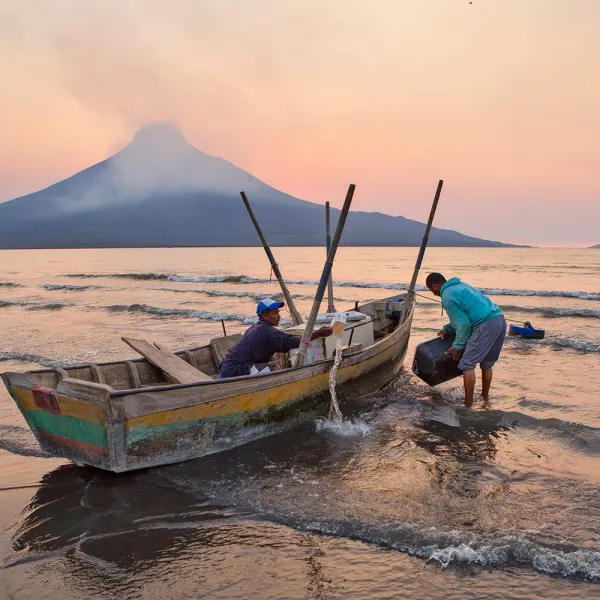
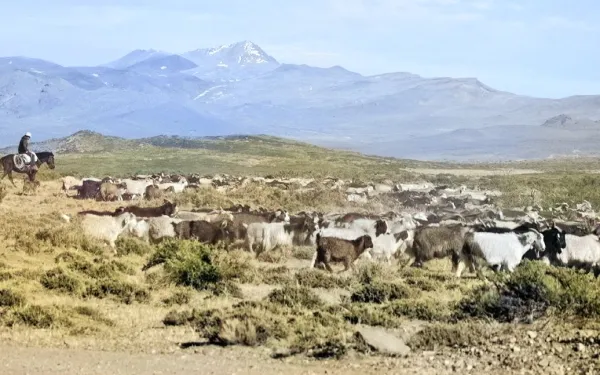
The Mapuche: in defense of ancestral territory in Argentina
In the south of the province of Mendoza, Argentina, several communities belonging to the Mapuche people—one of the 39 self-recognized indigenous peoples throughout the country—have come together in the Malalweche Territorial Identity Organization to defend their rights, way of life and territorial integrity from extractive, energy and tourism activities and projects. One of the threats that these communities are currently facing is the advance of the exploration and exploitation of unconventional hydrocarbons through fracking. In 2018, the government of Mendoza issued Decree 248, which regulates fracking activities in the province. Before issuing the norm, it overlooked the right of the Mapuche communities in the area to be consulted and to give their free, prior and informed consent. It then made the consultation conditional on the communities having legal recognition of rights over their territory. Since then, the Malalweche Territorial Identity Organization has been fighting a court battle to have the decree declared unconstitutional. The lawsuit, initiated by the Oikos Environmental Network Association, is backed by national and international environmental organizations, including the Association for the Promotion and Protection of Human Rights-Xumek, the Environment and Natural Resources Foundation (FARN), AIDA and Earthjustice. The Mapuche communities are tireless in their struggle. The reason is simple: their strength comes from what they protect. It comes from their intimate connection to the territory and all that it holds. A broader vision of territory As in the case with indigenous peoples across the American continent, territories of the Mapuche people are rich in natural resources, which causes large interests to set their eyes on them, ignoring or wanting to ignore those who legitimately inhabit them. For the indigenous communities, territory is not limited to geographical space, but is conceived as the wider space from which human activities, such as grazing paths, emerge and converge. Rivers, mountains and animals are essential elements of the ancestral territory of the Mapuche people. They are distinctive parts of their culture. "These elements also make up the transhumance—a type of pastoralism that consists of seasonal movement along migratory routes—of the people who move, who go from one place to another," explains Gabriel Jofré, a traditional authority and spokesperson for Malalweche. "Today the territory is limited by private property, which makes you settle in a place; our parents used to say that you go where the territory takes you.” The intrusion and territorial usurpation by dominant and oppressive elites —at the beginning of the 20th century—led to the exodus of members of the Mapuche people, the dispersion of others and the silence of many more for fear of repression. In defense of community life Faced with the environmental, social and economic impacts of the intrusion of business activities in the ancestral territory of the Mapuche, the organization Malalweche promotes access to indigenous community property. Although the Argentine State recognizes in its Constitution the ethnic and cultural pre-existence of indigenous peoples and has ratified international conventions that oblige it to respect and guarantee their rights, the legal recognition of the rights of Mapuche communities to indigenous territories faces administrative obstacles and delays due to bureaucratic processes. "That is why, to avoid legal obstacles, we have developed the strategy of creating productive cooperatives," explained Gabriel. Kume Matru food products factory, a cooperative enterprise, was inaugurated on June 23, the date on which Winoj Tripantu, or the beginning of the Mapuche year, is celebrated. Kume Matru is a clear example of the versatility of these communities to walk the path of sharing and bringing together their own needs and those of others; to deliver not only food, but also the whole chain of hands that made it possible. "The people who recover these processes are a reflection of the ancestral forces that are in the territory of the pullü, the spirit of our grandparents," said Gabriel. "It is our children who begin to recover what at some point was cut off, these are processes that must be protected in order for that to happen." In line with this need, last March, the Inter-American Commission on Human Rights established that, in a context of climate crisis and environmental deterioration, "the States have the duty to title, delimit and demarcate the collective ancestral territory, attending to the particular characteristics of the specific human group and avoiding granting concessions for projects that may affect the territories in titling, delimitation and demarcation processes without a process of consultation and consent". The norms are clear, both domestic and international. States must guarantee the rights of indigenous peoples, avoiding governmental acts and/or judicial rulings that could affect them, and ensuring that economic development is sustainable and respectful of environmental integrity. Let us recover the legacy of the original peoples, who teach us to live in harmony with nature, as parts of the whole, interconnected with their forces, from which our own must also emerge as a renewed impulse to defend our common home.
Read more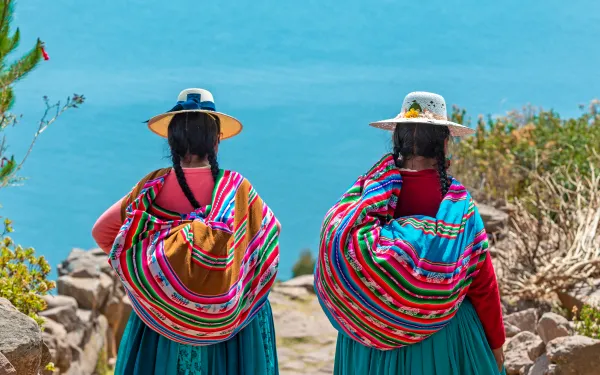
Lessons on protecting the right to a healthy environment
A healthy environment implies, among other things, breathing clean air, having access to clean water and quality food, and having a decent place to live. Until recently, the human right to a healthy environment was recognized only at the national level in most countries of the continent. Then, on July 28th, in a historic resolution, the United Nations voted unanimously to recognize a clean, healthy and sustainable environment as a universal human right. The decision is a significant step in the long and complex process of guaranteeing the right to a healthy environment in practice, which has been part of AIDA's story since our inception. "For nearly 25 years, we have invoked the right to a healthy environment to defend people in Latin America from environmental impacts that threaten their lives and dignity," explained Gladys Martínez de Lemos, our executive director. AIDA has always worked to highlight the link between a healthy environment and fundamental human rights such as those to integrity, life, and health. "In international law, it has taken time to assume this relationship, which for the AIDA has been undeniable from the start," added Liliana Ávila, senior attorney. "Our approach to international law begins with those affected and, based on that proximity, focuses on the communities whose rights have been most impacted by environmental degradation." What we’ve learned As an essential part of our efforts and over the years, we have learned that: The right to a healthy environment is increasingly included in Constitutions, laws and regional justice systems. This has empowered individuals and communities to demand its defense, as well as motivated judges to integrate it into their decisions. Strategic litigation—a combination of legal, communications, social mobilization and advocacy tools—is especially important in promoting the protection of fundamental human rights. The climate crisis has exacerbated the impacts of environmental degradation on the enjoyment of human rights and cases have tripled in number. This has brought with it the need to rely more on comprehensive and less on case-by-case strategies. Despite important advances, there are still large compliance debts for the right to a healthy environment to materialize in practice. The main challenge is the lack of implementation of court rulings. At the same time, the link between a healthy environment and human rights has served a variety of purposes, including the following: Demonstrating that the right to a healthy environment and other rights essential to life are indivisible. Demanding that States comply with their international human rights obligations, especially the application of the principles of prevention and precaution. Promoting the guarantee of access rights in environmental matters such as the right to information and participation. Our most emblematic cases While defending the right to a healthy environment is present in all our work, there are emblematic cases in which AIDA has helped establish key precedents by guaranteeing it. Restoration of rights for residents of La Oroya, Peru Our work as an international environmental organization began in 1998 with this case. Since then, we’ve worked to demonstrate how the violation of the right to a healthy environment—due to air pollution with heavy metals from a smelter—has violated the rights to life and health of residents of the city of La Oroya, Peru. We’ve shown how the impacts have been differentiated for women, children and the elderly. And we’ve demanded that the Peruvian State take urgent measures to guarantee the rights of the affected population. In 2005, we took the case to the Inter-American Commission on Human Rights, which in September 2021 brought it before the Inter-American Court after establishing the international responsibility of the State. It will be one of the first cases to centrally address the indivisible relationship between a healthy environment and other human rights. A healthy environment as a fundamental right for human existence In November 2017, in response to a consultation made by Colombia, the Inter-American Court of Human Rights established that a healthy environment is an autonomous right, "fundamental to the existence of humanity." It also recognized the impact of climate change on the effective enjoyment of human rights, especially for the most vulnerable populations such as indigenous peoples, children and people living in extreme poverty. In the framework of the consultation, AIDA presented our observations and participated in the hearing before the Court. We demonstrated that the implementation of large infrastructure projects could affect the environment to such an extent that it would put life and personal integrity, among other human rights, at risk. Our contribution made clear the link between human rights and the environment. Access to justice for people affected by environmental damage When Veracruz residents defended the Veracruz Reef in court against damage from a port expansion, AIDA presented technical and legal evidence supporting recognition of the rights to a healthy environment and access to justice. Together, these obligate the government to allow anyone whose fundamental rights are threatened by environmental degradation the possibility of achieving justice, regardless of whether their connection to the threatened ecosystem is indirect or remote. We directly contributed to the Mexican Supreme Court’s ruling in February 2022, in which the Court determined that authorities violated the right to a healthy environment of the people of Veracruz by authorizing the port project. "The UN's recognition of the right to a healthy environment as a universal human right is undoubtedly an impetus for the construction of new key precedents for its protection," said Daniela García, AIDA attorney. It’s also an impetus for states to strengthen their policies and legislation focused on environmental protection, as well as to enshrine this right in their legal frameworks. And it’s a tool for people and organizations that defend the environment and human rights to strengthen their work. At AIDA, we are clear about this, and we reaffirm our commitment to our mission of strengthening people's capacity to guarantee their individual and collective right to a healthy environment.
Read more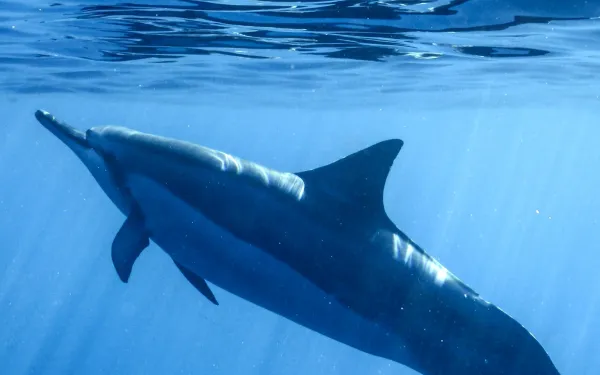
Ambition and urgency needed as high seas treaty negotiations near end
New York: With only one week to go in the negotiations for a new Treaty to protect two thirds of the ocean - the High Seas - civil society is raising alarm about the level of urgency and ambition towards a robust outcome for the ocean. A number of States have made public commitments to secure an ambitious Treaty at this final scheduled session, but there is concern that this is not being fully reflected in the formal negotiating room. The High Seas Alliance (HSA) expects more ambition to be shown by the United Kingdom, the European Union, Canada and the United States which have been public champions for the ocean, including at the recent UN Ocean Conference. These delegations support some progressive positions within the Treaty negotiations, but too many appear to be maintaining positions that will not result in the transformation we need for a healthy and productive ocean for current and future generations. Some states and groups are pushing for a strong outcome. CARICOM, (the Caribbean Community), the Pacific Small Islands Developing States, New Zealand, Costa Rica and Monaco are setting the pace for a speedy and effective outcome. This round of negotiations, known as IGC5, is the fifth and final scheduled meeting convened by the UN General Assembly. It is tasked with concluding a Treaty to protect Biodiversity in Areas Beyond National Jurisdiction, which includes the High Seas, and which makes up half the planet, two thirds of the ocean. For decades, the international community has struggled to reach this agreement during which time climate change and biodiversity loss have escalated. The HSA recognises that the “package” of elements under negotiation are intrinsically linked and critical to successful completion of the negotiations. “The greatest opportunity of our generation to show we are serious about protecting the global ocean is now. A strong High Seas Treaty is in reach but more ambition is needed. Governments must stick to their commitment to deliver a truly ambitious Treaty this week and finally move to taking action that will allow the ocean to recover and thrive; for marine biodiversity, Earth’s climate and the well-being of generations to come. There is no more time to waste. - Sofia Tsenikli, Senior Strategic Advisor to the HSA. QUOTES FROM MEMBER ORGANIZATIONS CANADA Susanna Fuller, VP Operations and Projects, Oceans North: "With the longest coastline in the world and as a self-declared ocean champion, Canada plays a vital role in achieving a strong Treaty. We are hoping to see Canada’s ambitions meet the urgent need for biodiversity protection and responsible management for 50% of the planet. With climate change impacts accelerating and biodiversity loss increasing, finalizing and implementing this Treaty cannot come fast enough." LATIN AMERICA Gladys Martínez de Lemos, Executive Director, AIDA (Interamerican Association for Environmental Defense): "Most Latin American countries have publicly stated their commitment to increase marine protected areas by 30% by 2030. This cannot be achieved without an ambitious High Seas Treaty. In addition, 70% of the areas that would not be protected need a high-level environmental impact assessment process with capacity and implementation. During all the negotiations Costa Rica has shown its commitment to a robust and ambitious Treaty. We thanked Costa Rica for its exemplary championship along these years." SOUTH KOREA Jihyun Lee, High Seas Alliance Youth Ambassador and undergraduate student at Yonsei University, South Korea: "Youth and future generations demand a strong and meaningful High Seas Treaty that will effectively protect the ocean. We are calling in unified support for world governments to finally take bold action for our ocean." US Lisa Speer, NRDC: “We applaud the more progressive approach of the United States, which has been a strong advocate for concluding the negotiations in a timely fashion, and for strengthening environmental assessment. However, we need the US to show more leadership to ensure that the new Treaty will result in the creation of a science-based network of fully protected areas in all areas of the High Seas, which scientists tell us is essential to reversing the decline of the ocean." EU + UK Laura Meller, Protect the Oceans campaign, Greenpeace: "It’s deeply concerning that the European Union and UK continue to insist on maintaining a broken status quo when it comes to creating ocean sanctuaries on the High Seas at this round of negotiations. The bloc and the UK must raise their ambition in the last days of negotiations if they truly want to be global ocean champions, and ensure that a strong Treaty which has the power to create properly protected ocean sanctuaries on the High Seas is finalised this week. If they don’t, their fine words in the run up to these negotiations will be little more than empty rhetoric. The oceans are in crisis. We need ambitious, urgent, action before it’s too late." PSID + CARICOM Travis Aten, Programme Officer, HSA: "We continue to applaud the Pacific Small Island Developing States (PSIDS) and the Caribbean Community’s (CARICOM) continued leadership during this negotiation process, notably through their support of robust and ambitious conservation positions. As islands that are surrounded by the ocean, it is clear to them that this Treaty must move beyond the current status quo and implement real change on how we manage biodiversity of the High Seas." Fabienne McLellan, Managing Director, OceanCare: “It is encouraging to see that there is an increased spirit of urgency in the room. Many negotiators are rolling up their sleeves, aware that the world is watching to judge if the rhetoric on ocean commitments made in the lead up to this conference is translating into the Treaty text. While unfortunately some of the Treaty text elements are being watered down, it is not yet too late to make a turn around. Cementing the status-quo and the lowest common denominator is not good enough. We need an ambitious and implementable Treaty. The state of emergency of the ocean demands nothing less. NOTES Covering nearly half of the world’s surface, the High Seas—a true global commons—is only protected by a loose patchwork of poorly enforced rules that are ill-suited to address a growing onslaught of pressures to the water column and seabed below, including climate change, pollution, fishing, and emerging activities like deep-sea mining and bioprospecting. The negotiations began in 2018 and have since benefited from increased scientific and political awareness of High Seas marine life and habitats, as well as the dangers they face from human activities. For instance, until relatively recently, “High Seas” were considered to be largely devoid of life or too remote to face serious threats from overexploitation. Today, scientists have shown that they support marine systems that are vital to the global food supply, terrestrial ecology, and stability of the climate system. SPOKESPEOPLE Latin America Mariamalia Chavez (Spanish, English), [email protected] Gladys Martínez de Lemos (Spanish, English), AIDA, [email protected]
Read more